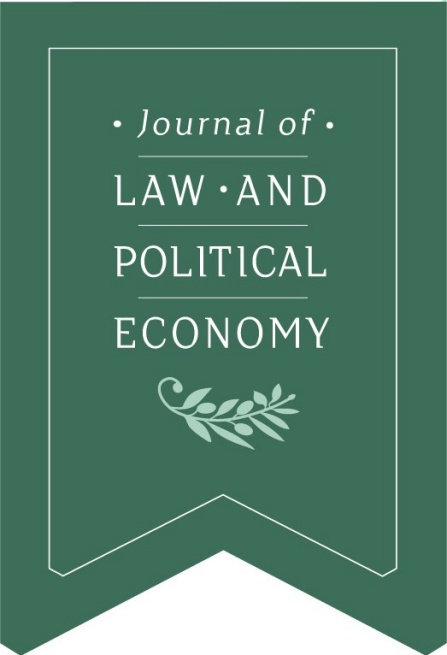
Building the New: Just Transitions & LPE
Just Transition calls us to center questions of justice and distribution in the fight for an ecologically sustainable future. This call resonates deeply with the core concerns of LPE.

Just Transition calls us to center questions of justice and distribution in the fight for an ecologically sustainable future. This call resonates deeply with the core concerns of LPE.

Muscles and arteries. Hammers and parasites. Addictions and complexes. Destin Jenkins concludes our Bonds of Inequality symposium by reflecting on the political implications of the metaphors we use to describe municipal debt.

Voters respond differently to policy options depending on how they are presented. Determining what constitutes ethical presentation demands an an exercise in prudence.

Americans pay excessively high prices for prescription drugs. To make medicines more affordable, the Biden Administration must confront the pharmaceutical industry’s monopoly power.

Municipal financing schemes have often distributed the benefits of spending along race and class lines, yet federal programs have a similarly mixed track record. How, then, can we safeguard public investment to secure just outcomes? The answer may reside in the details of agency and program design.

President Biden’s recent Executive Order on Promoting Competition brought much-needed attention to labor market concentration, employer collusion, and abusive employment contracts. Nevertheless, more action is needed to address systemic sources of employer power.

By failing to articulate a vision of fair competition, the White House has delegated the task of moral exposition to its cabinet secretaries and agency leaders. This move may not prove fatal to the aspirations of antimonopolists, as some agencies are well positioned to do the work.

Can public things meaningfully protect us from capitalism’s bottom line? If not, is our hope in them as a lever of progressive politics misplaced?

Neither Congress nor the Court have called for a one-size-fits-all approach to regulatory analysis, yet CBA continues to loom large in environmental policymaking. Agencies should reach for other tools that better capture the advantages and disadvantages of regulatory alternatives.

Economists who insist that the “value of a statistical life” can be determined solely by looking at the preferences of individual economic agents in a market overstate their case and miss crucial alternatives. The pandemic has shown that democratic determinations of value for non-market goods (like human life) deserve greater consideration.

While treating economic growth as the summum bonum of public policy may reflect the preferences of economists, large majorities of voters across the political spectrum oppose using the aim of wealth maximization to guide regulatory decision-making. The time has come to abandon cost-benefit analysis and adopt a progressive approach to regulatory analysis.

Two examples from the experience of people living with disabilities demonstrate CBA’s shortcomings.

CBA’s reliance on a “partial equilibrium” falls apart under the weight of real-world complexity. Rather than attempting to reform cost-benefit analysis, OIRA should reject it outright.

The Fair Housing Act, as written, provides several tools to challenge inequitable urban development. Yet the courts have been reluctant to enforce the law.

Conservatives have used cost-benefit analysis much more strategically than liberals to advance underlying political goals. Rethinking CBA within an LPE framework will require not only critique of its technical assumptions, but a willingness to be similarly strategic in thinking about its deployment.